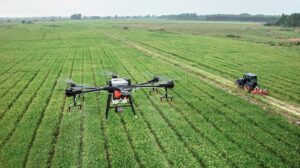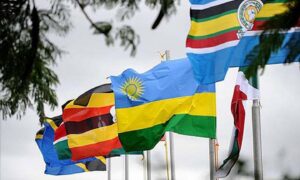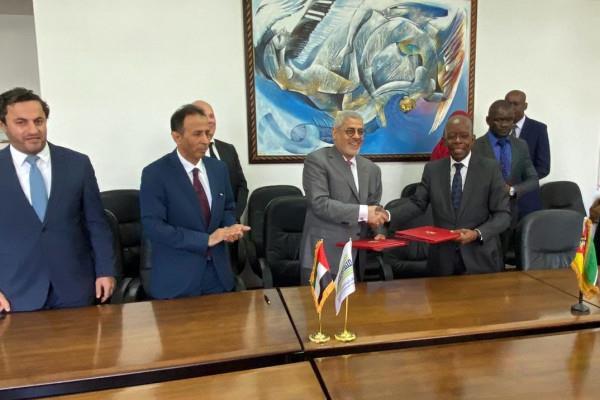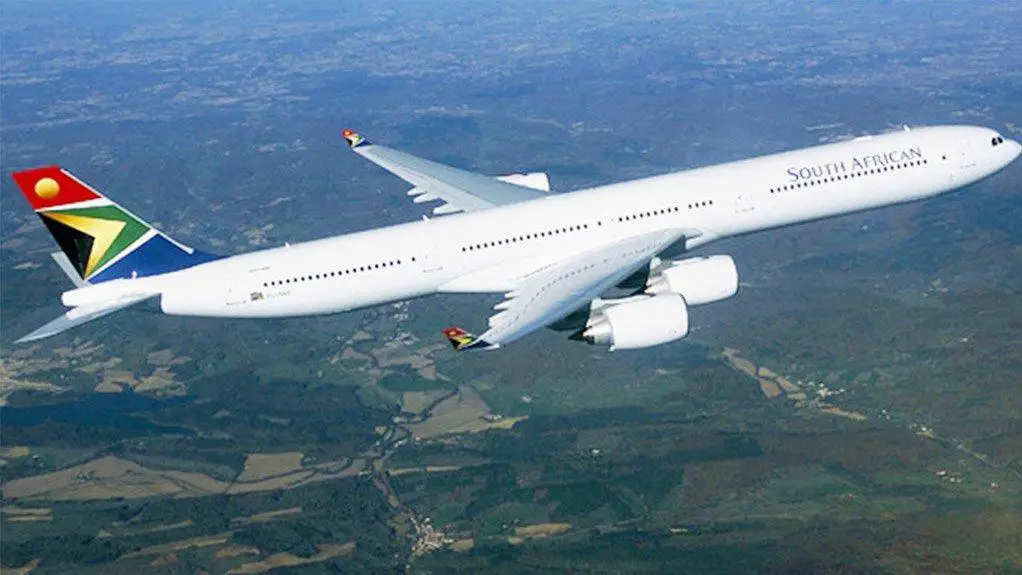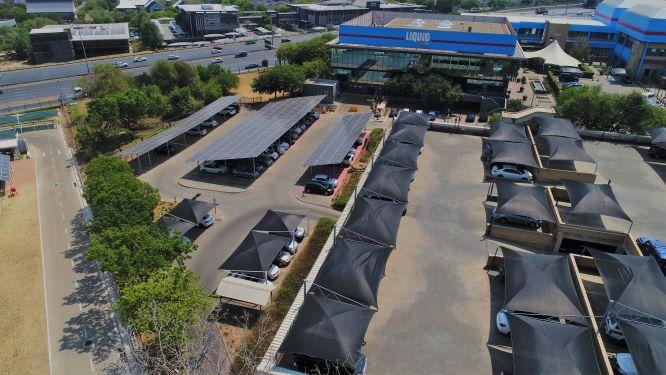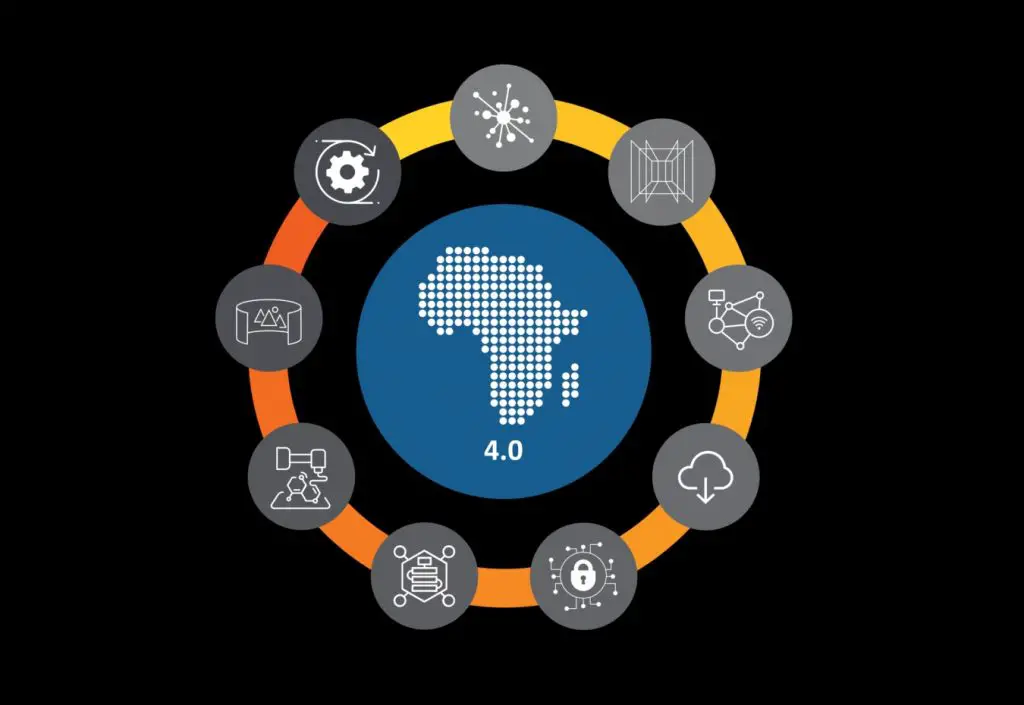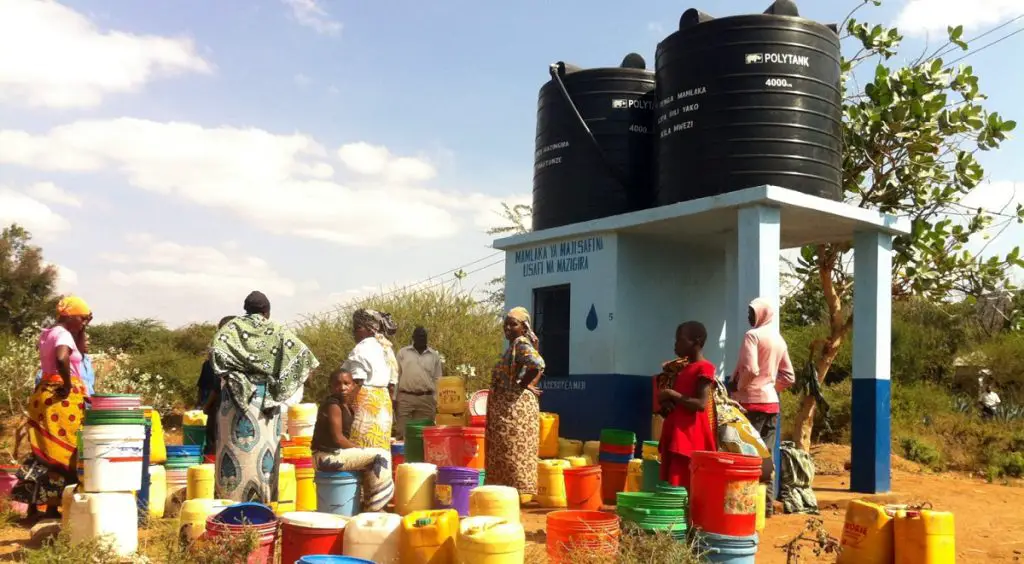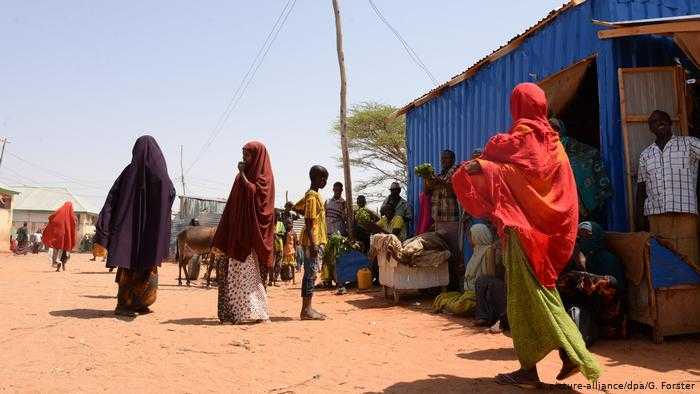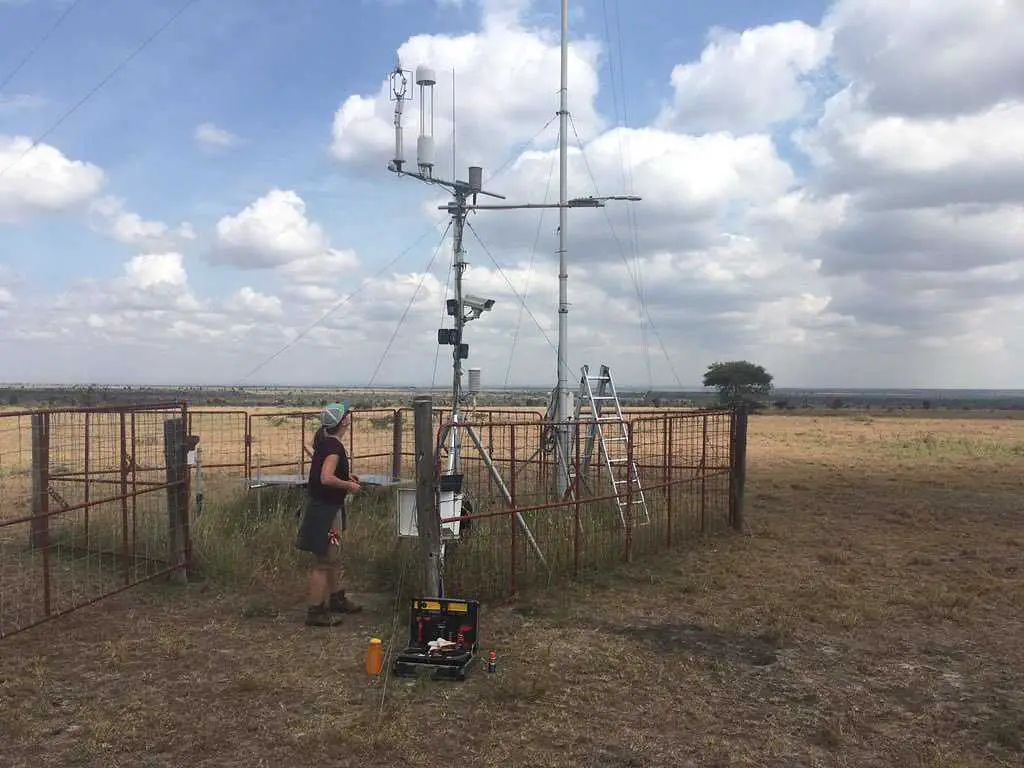- Kenya’s remittance inflows grow boosting forex reserves
- Africa’s agritech potential crucial for economic growth
- EAC set for fastest economic growth as Sub-Saharan Africa recovers in 2024
- DRC Joins Organisation of Southern Cooperation to Boost Bilateral Ties With Member States
- The takedown of Chinese-backed cybercrime ring in Zambia
- New threat in 2024: Red Sea shipping disruptions by Houthi rebels ripple through global trade
- High Demand for Short-Term Rentals in Nairobi as Hospitality Sector Evolves Post Covid-19
- Blue Economy Investments to Earn Kenya $921m Annually In Revenue Boost
Month: February 2020
Food and Agriculture Organization (FAO) received €11 million contribution from the European Union as the UN agency steps up efforts to fight the desert locust outbreak.
FAO Director-General QU Dongyu received the contribution to help fight the locust upsurge which has now spread from East Africa to the Persian Gulf.
The European Commission announced that €10 million would come from the European Commission’s Directorate-General for International Cooperation and Development (DEVCO). While another €1 million will come from the European Civil Protection and Humanitarian Aid Operations (ECHO).
“I want to thank the European Union for its generosity and support as the Desert Locust threatens to provoke a humanitarian crisis in East Africa,” Qu said.
Qu also added that the situation is extremely alarming in a region where 20 million people are already considered food insecure.
The locust outbreak is the worst in the last 25 years for Ethiopia and Somalia and …
The Ministry of Economy and Finance of the Republic of Mozambique and the Khalifa Fund for Enterprise Development, KFED and signed a $25 million Memorandum of Understanding (MoU), to support entrepreneurship and innovation projects for women and the youth.
The chairman Khalifa Fund for Enterprise Development, Hussain Jasim Al Nowais, and Adriano Afonso Maleiane, Mozambique’s Minister of Economy and Finance signed the MoU in the presence of UAE Ambassador to Mozambique, Khaled Ibrahim Shuhail and other of officials from both sides.
During the five-year as per the Mou, Hussain Al Nowais said the agreement will provide funding for 4,800 projects which will generate 11,000 job opportunities.
‘Some 40 per cent of the targeted projects will be to empower women, while the remaining will be allocated for other members of the remote and poor communities,’ he explained.
Hussain emphasized the importance of creating opportunities for the women and youths to realise …
Africa is set to become one of the fastest-growing regions for aviation in the next 20 years with an annual expansion of nearly 5 per cent, according to the International Air Transport Association (IATA).
According to the International Air Transport Association (IATA), this growth is being driven by African and international carriers adding more routes on the continent and scaling up their operations by acquiring or getting partnerships with other airlines operating in the region.
Turkish Airlines in the past decade tripled the number of African cities it serves from 18 to 56, while other Middle Eastern, European and Asian airlines, are adding routes as well.
Meanwhile, other African carriers are rushing to raise capital to fund their expansion, by offering to sell stakes in their companies to other airlines on the continent.
Like in 2018 Ethiopian Airline, the continent’s largest airline by revenue and profit signed a deal to …
4G Capital announced the completion of its second round of fundraising. The funding was secured by a $2 million debt from Ceniarth LLC, making the total raised to $4 million.
The company will use the investment for lending to its growing customer base of informal MSMEs across Uganda and Kenya.
Since the company was starred in 2013, 4G Capital has grown exponentially, lending over750, 000 loans valued at $90 million. In 2019, the company’s revenue increased by 97 per cent as 4G Capital supported over 60,000 MSMEs.
By the end of 2020, 4G Capital will have lent $43.6 million surpassing all expectations. Without refinancing, repayment rates remain above national averages at over 94 per cent.
Also Read: Mentors jostle for space in Kenya’s challenging SME sector
“The rapid expansion of mobile and technology-based financial services in emerging markets has the potential to provide critical capital to individuals previously excluded from …
Africa is one of the sunniest continents in the world, 85 percent of African land receives more than 2,000 kilowatt-hours of solar energy per square meter per year. Almost 70% of the population of African countries is located in the Sahara and the surrounding areas do not have access to the grid.
With the need to hook up to the grid, a new partnership is moving towards achieving more solar power for the industry. Kenyan industries are set to benefit by saving a minimum of 30% on their current cost grid consumption following a partnership between Distributed Power Africa (DPA) and Canadian Solar company. Currently, Kenyan companies lose nearly 10% of their production because of power outages and fluctuations.
The deal is expected to help DPA provide top tier PV panels from the company that is estimated to be over 60,000 KuMax and HiKu which would quite easily construct 50 …
Since the turn of the century, Africa’s GDP has grown by 4.6 per cent annually, on average.
Domestic demand has been Africa’s key driver of the growth performance accounting for 69 per cent of annual growth between 2000 and 2018, according to the African Union (AU).
The AU notes that this is reflected in the demand for processed food which is growing 1.5 times faster than the global average. On the other hand, the demand for many other products such as vehicles, manufactured metals and industrial machinery, is expanding faster than the global average.
This makes it a good opportunity for local firms to grow in size and productivity.
Start-ups in Africa
On the tech front, start-ups in Africa have also increasingly emerged with the top three activities relating to information technology and communications (ICT) and internet services; digital applications and software; and the creation of audio-visual content and broadcasting.…
The East African region is counting the cost with more than 35 million people more are at risk due to the locust invasion…
Communities without a reliable clean water supply are set to benefit from a project that will utilise solar technology to desalinate water.
This follows the launch, by four companies, of East Africa’s biggest decentralized water desalination project which is estimated to cost Ksh 435 million (4 million Euros) has been led.
The four companies German energy Solutions Company Boreal Light GmbH (G) and Atmosfaire gGmbH (G) have partnered with local companies WaterKiosk® Ltd (K) and Bilal Sustainable Development Programme to construct 40 solar water desalination systems in 10 counties in Kenya and three cities in Tanzania- Arusha, Tanga, and Dodoma.
This partnership is aimed at providing water for communities suffering from endemic water shortage in the target areas.
The desalination systems will deliver a total of one million litres of clean drinking water per day. They will be installed in Wajir, Mombasa, Naivasha, Garissa, Turkana, Machakos, Makueni, Kajiado, Marsabit, Narok, …
Africa’s close development partner, World Bank—on Thursday took a serious initiative to restore its relations with Somalia, after being dull for almost 30 years
According to the statement from World Bank Group, the bank’s Board of Executive Directors moved toward normalizing its relations with the Federal Government of Somalia (FGS).
World Bank anticipates that the restoration will open up opportunities for Somalia to access concessional financing from the World Bank’s International Development Association (IDA) and to work closely with all arms of the World Bank Group to attract investment that will support the country’s stability and development.
The restoration could revitalize Somalia’s economic sphere, as the nation’s real gross domestic product (GDP) growth weakened in 2017 due to the severe drought. Although Somalia averted widespread famine in 2017, the drought led to large-scale food insecurity, affecting more than six million people.
In that context, World Bank Vice President for Africa …
At Kapiti research station, 70 Km south of Nairobi, scientists based at the International Livestock Research Institute (ILRI) and its Mazingira Centre – a-state-of-the-art environmental and education facility in East Africa is conducting essential climate observations. Collecting actual data on how the climate is changing in Kenya’s Savannahs has remained a challenge. Thus, the data available to show climate variations in East Africa has always needed validation.
The most commonly used method is use of satellite imagery which unfortunately lacks the ability to show actual data for a specific area spanning a couple of kilometers. This data captured by satellite, especially land surface temperature and greenhouse gas emissions might have a certain level of difference with that observed on the ground, commonly referred to as variance. Further, the use of satellite imagery and simulations are often not calibrated to the region where they are applied to and thus have an …

